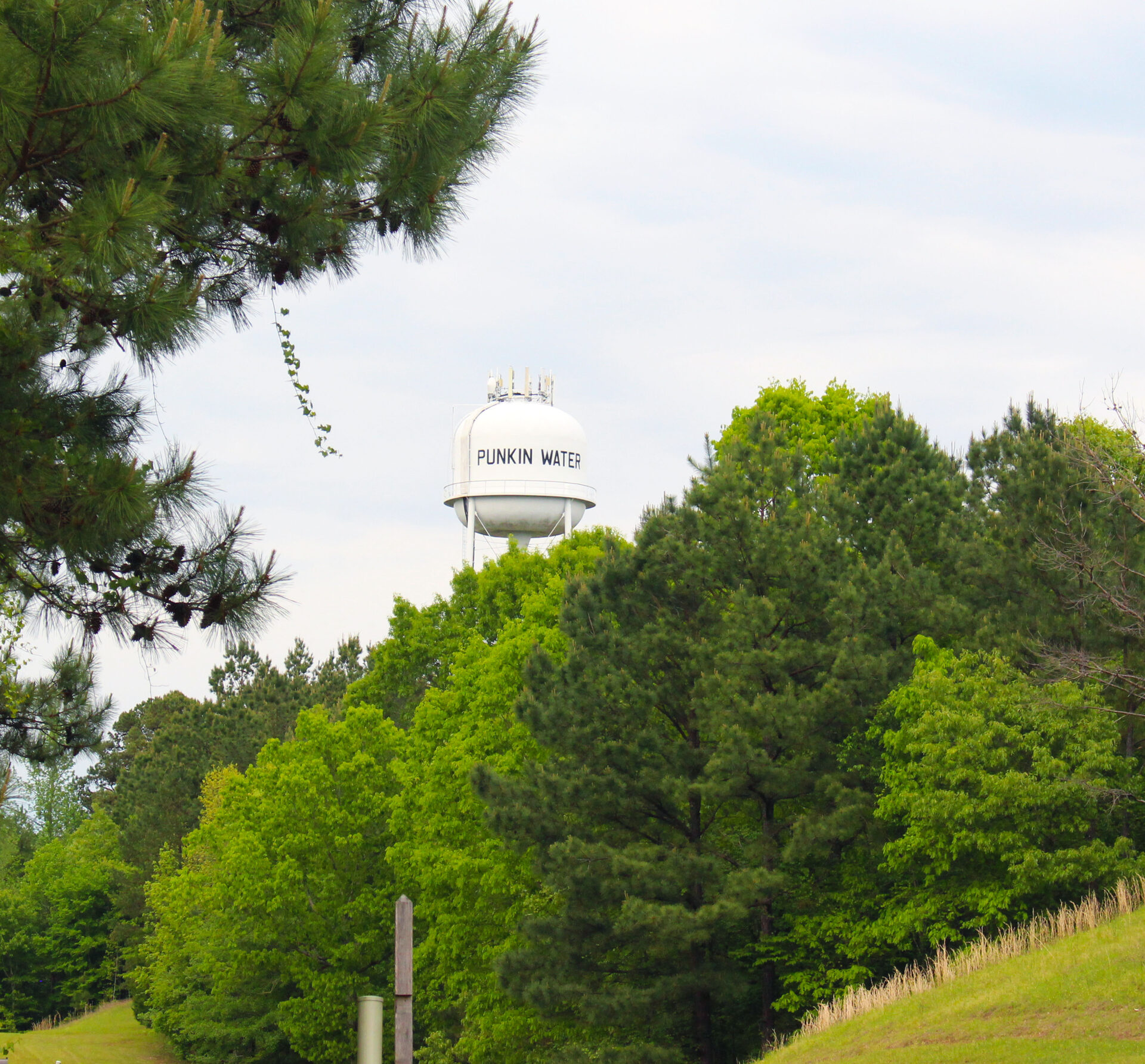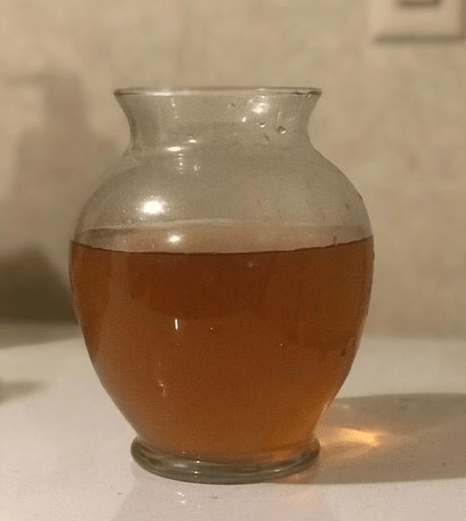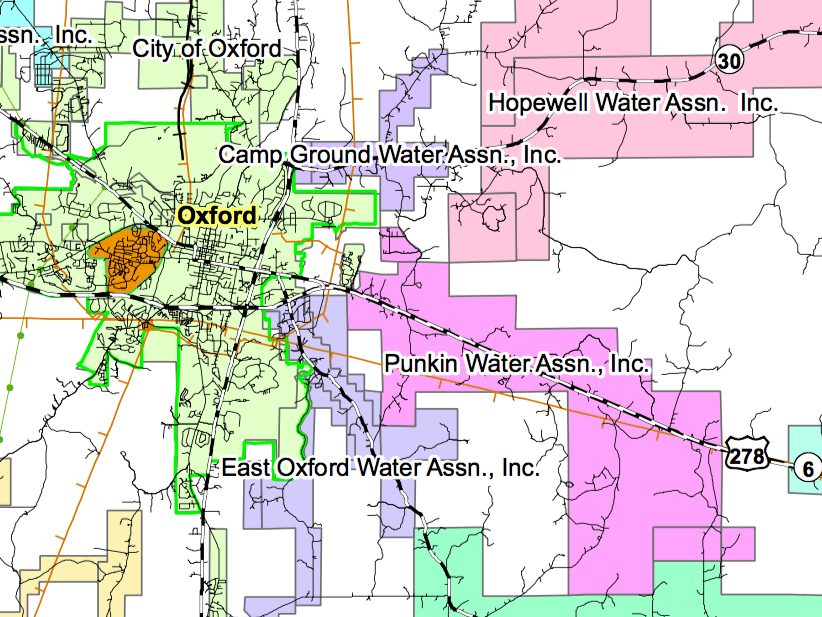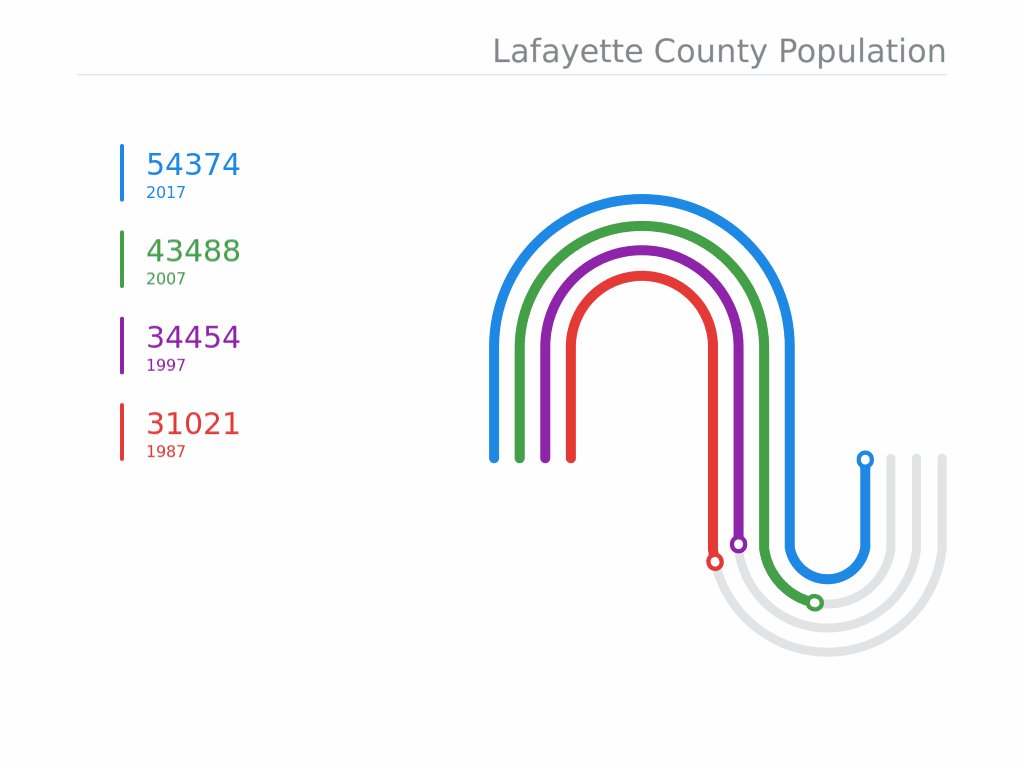
The Punkin Water Tower located on Highway 6 can be seen through the trees from the Tuscan Hills and Highlands subdivision. Tuscan Hills and Highlands are two subdivisions on Punkin Water’s system. Photo by Briana Florez.
The state of Mississippi has more small community water systems than any other state in the country.
According to the Environmental Protection Agency, a public water system is classified as ‘small’ when it serves 10,000 or fewer people. In 2016, more than 97 percent of the country’s public water systems were small.
Smaller systems have less money and resources, which can lead to big issues. That’s exactly what some customers say happened with Lafayette County’s Punkin Water Association.
Punkin Water Association serves more than 850 customers in local subdivisions including Tuscan Hills, The Highlands, The Lakes, and individual residences. The association is made up of a five-member board, which convenes once a month.
Recently, local residents became frustrated with their water quality and decided to take the matter into their own hands. Max Hill, a property owner in the Punkin district, said he takes credit for “picking the fight” with Punkin Water Association.
“About a year and a half ago, after periodic problems with the quality of our water, I had enough of running water in my daughter’s bathtub and it being Coca-Cola brown,” Hill said.

Hill made a call to Mississippi Public Service Commissioner Brandon Presley to see what actions he needed to take to get a hearing. He learned he would need 10 percent of Punkin’s customers to sign a petition. He and other community members acquired those signatures with ease.
Experts found the two main issues with Punkin’s system are water pressure and excessive iron and manganese content which causes brown-colored water. University of Mississippi associate professor of civil engineering Cris Surbeck said the location of Punkin’s well is the reason for the quality issue.
“In the case of Punkin and their main well where the water occurs, there’s a lot of naturally occurring iron in the soil,” Surbeck said. “So when you pump that water to the people, you pump iron too.”
John Davis, president of Punkin Water Association, admitted at the hearing in May that the system’s well cannot handle higher demand in drier weather.

The pumps Punkin’s distribution system use are not designed for the continuously growing population it serves, according to Surbeck, which is why residents at the end of the line, may turn on their faucets and only get a trickle of water.
Water operator Tony Bishop said changes have been made to improve Punkin’s water quality— such as replacing the system’s filter sand— which has removed much of the iron from the water. Hill himself said the water quality has gotten better since the hearing. As for the pressure issue, Bishop said the current 2-inch lines will be replaced with 8-inch lines by summer, increasing the flow.
Many residents questioned, as Lafayette County continues to grow, will Punkin need to increase its capacity further? The Association proposed a solution at last May’s hearing that would involve connecting to the City of Oxford’s water system through a master meter and purchasing up to 250,000 gallons of water per day.

The proposal was approved by the Board of Alderman, but the city’s chief operator Bart Robinson said it is now Punkin’s move.
“We’re just waiting for them to pull the trigger, and what I mean by that is for them to say, ‘Ok, we’re ready to start installing this pipe that we’re going to take new water out of,’” Robinson said.
Hill said he will keep pushing for Punkin to take action, but he said other communities around Mississippi need help, too. He would like to see the state pass legislation that would give county governments the ability to take over small water systems.
“I’ve traveled to countries that would be considered third-world countries, and they didn’t have those kind of water issues,” Hill said. “So, in 2019 in the United States, why are we?”
Story contributed by students Briana Florez and Skye Spiehler bfflorez@go.olemiss.edu, sespiehl@go.olemiss.edu
